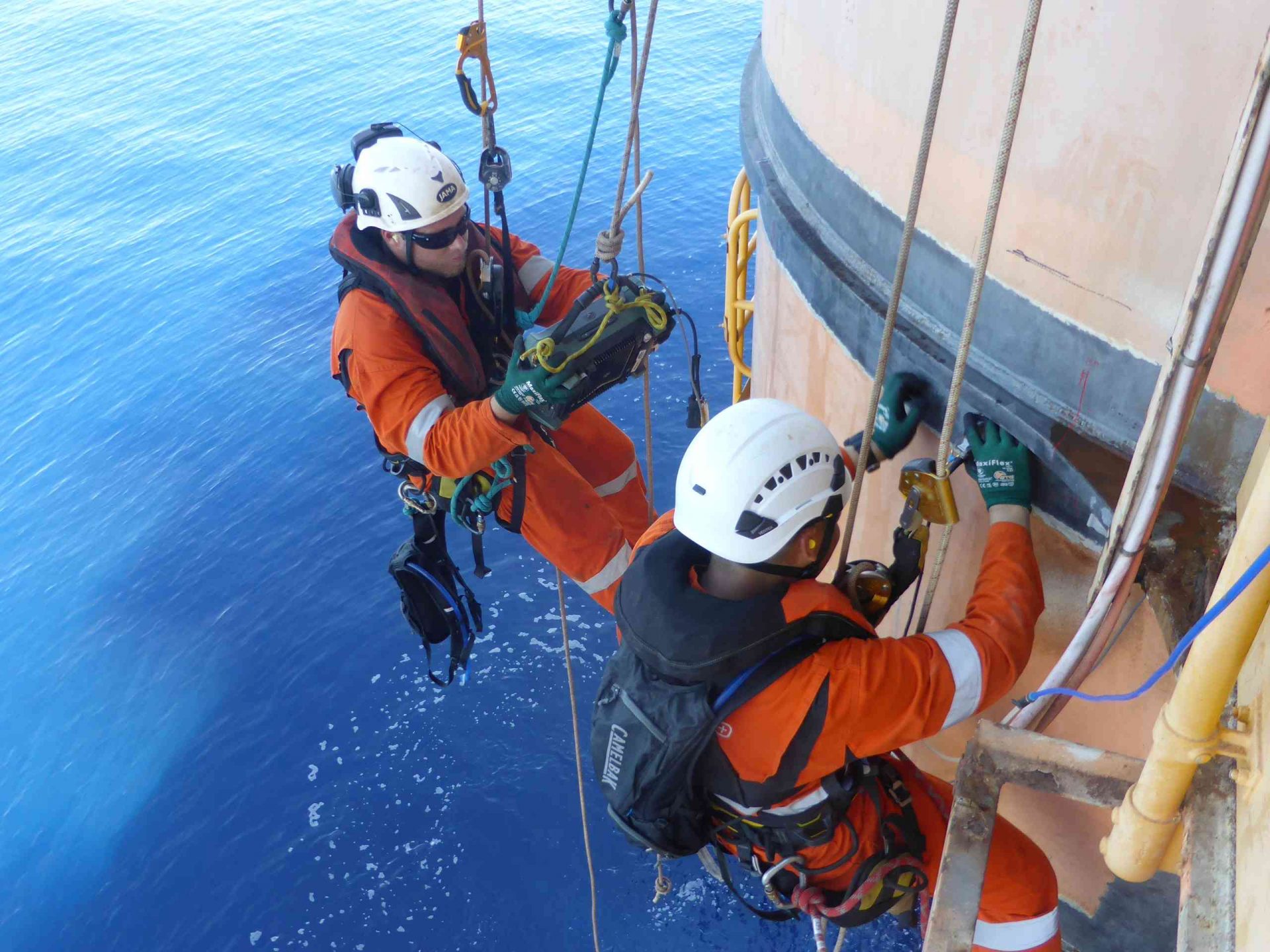Rope Access Services

SWA offers IRATA rope access services to compliment all of our inspection methods provided in Perth, WA and offshore locations
Rope Access Perth
Standby rescue and on-site rescue teams – All SWA inspectors hold IRATA rope access qualifications and are able to provide a wealth of knowledge on any project from identifying hazards, creating complex rescue plans, planning and performing rescues from confined spaces, heights or over the side of vessels and platforms.
Key features
- Crane Inspection.
- Drill Derrick Inspections.
- Tank Inspections.
- Piping Inspections.
- Liner Inspections.
- Confined Space Work.
- Standby Rescue Teams.
Rope Access Technicians in Perth, WA
Although rope access can be utilized in many different areas across all industries, we prefer to keep it predominantly as an access method to do what we do best.
Rope access can make light work of any inspection task performed at height, from performing Magnetic particle inspections of new structure, thickness testing of a tank, piping or chute, eddy current inspections on lifting equipment, cranes or a derrick to performing pull tests on padeyes or inspecting lifting equipment currently in use.

IRATA Rope Access
IRATA – (Industrial Rope Access Trade Association) is a method for performing work at height activities and requires a high level of competency on the part of the user. Industrial rope access is a safe method of work positioning system that uses equipment to prevent a fall by suspending a worker in a harness.
IRATA International has long been considered the world’s leading authority in Industrial Rope Access. The Association, from its inception in the early 80s, had the primary objective of the ongoing development of a safe system of work, allowing personnel to gain access to and from the work position, and be supported there with minimal risk.
The advantage of using IRATA rope access methods mainly lies in the safety and less requirment for additional resources which workers can get to or from difficult or locations in order to carry out their work, often with minimal impact on other operations, plants or surrounding areas and the environment.























